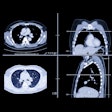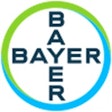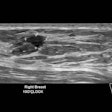
Over the last few years, all of us in the world of radiology have come to learn about "commoditization." Today I'd like to introduce another ugly word that describes a different but related concept: "taskification."
For our purposes, taskification can be defined as the breaking down of a complex professional role into a number of smaller tasks, the implication being that these can then be performed by other people with lesser training and who are therefore cheaper. This of course doesn't apply only to radiology, or even only to healthcare, and it is currently a hot topic across business and many professions.
 Dr. Giles Maskell.
Dr. Giles Maskell.The first thing to say is that taskification is not always a bad thing. Below is an example that I hope is not too controversial.
In the distant past, every injection of intravenous contrast in our CT department was personally administered by a radiologist. Training nonmedical staff to perform this task has freed up many hours of my time in which I can focus on more complex aspects of my role. Yes, there were a few occasions on which the opportunity to see and speak to the patient gave me a little extra information to support my interpretation of the images, but in general, I would say that delegating the task of injecting intravenous contrast has had an overwhelmingly positive impact, and I think most radiologists would probably agree.
However, even this example illustrates a few of the potential problems.
First, asking someone else to take on the role of cannulation means taking them away from whatever work they would normally be doing. Unless there are staff sitting around waiting for something to do -- not a situation I have often seen in a radiology department -- an extra pair of hands will still be required. In other words, this service model may appear cheaper, but it's not free! And that's before considering the costs of training, assessment, maintenance of competence, and so on.
Also, once this task has become someone else's job, the radiologist who used to perform it rapidly becomes deskilled. It is remarkable how quickly people become unable to perform a task that was second nature to them only very recently.
So, the upshot is that it takes more people to provide the service. One of the consistent results of taskification is a need for greater than anticipated workforce expansion -- that is, unless or until the particular task can be performed by a machine.
Another issue is that once the task is performed in isolation from its clinical purpose, its meaning can be lost. The person to whom the task is assigned can start to find it boring and repetitive, leading perhaps to a loss of motivation, a reduced focus on quality, increased sickness absence, and other negative effects.
A further point that may be overlooked is the part that the performance of quite basic tasks might play in the development of overall professional expertise. In his book, "Expert: Understanding the Path to Mastery," the former surgeon Prof. Roger Kneebone draws on examples from many walks of life. One of his case studies is that of a tailor who describes how he was required to spend many years conducting basic stitching before he was able to move on to more complex aspects of suit making, and how the skills and "feel" for the materials with which he was working that he acquired during the early years provided essential grounding for what he later needed.
I wonder whether there is a parallel with interventional radiology -- perhaps the familiarity with human tissues gained by inserting hundreds of intravenous cannulas might contribute in some way that we don't fully understand to the later development of greater expertise in undertaking more complex interventions. Certainly, Kneebone believes that this applies in surgery.
I'm not calling for a return to the old days of radiologist cannulation -- I've merely given an example that illustrates how the deconstruction of professional roles into smaller tasks might have implications beyond the obvious.
At the heart of all this is a discussion about whether there is something extra that a radiologist brings to the role over and above the performance of a set of tasks which other parties -- human or computer -- might seem to perform as well or better. I think all of us believe that there is, but we need to get better at defining what it is and explaining it to other people.
Dr. Giles Maskell is a consultant radiologist at Royal Cornwall Hospitals National Health Service (NHS) Trust, Truro, U.K. He is a former president of the U.K. Royal College of Radiologists. Competing interests: None declared.
The comments and observations expressed herein do not necessarily reflect the opinions of AuntMinnieEurope.com, nor should they be construed as an endorsement or admonishment of any particular vendor, analyst, industry consultant, or consulting group.



















